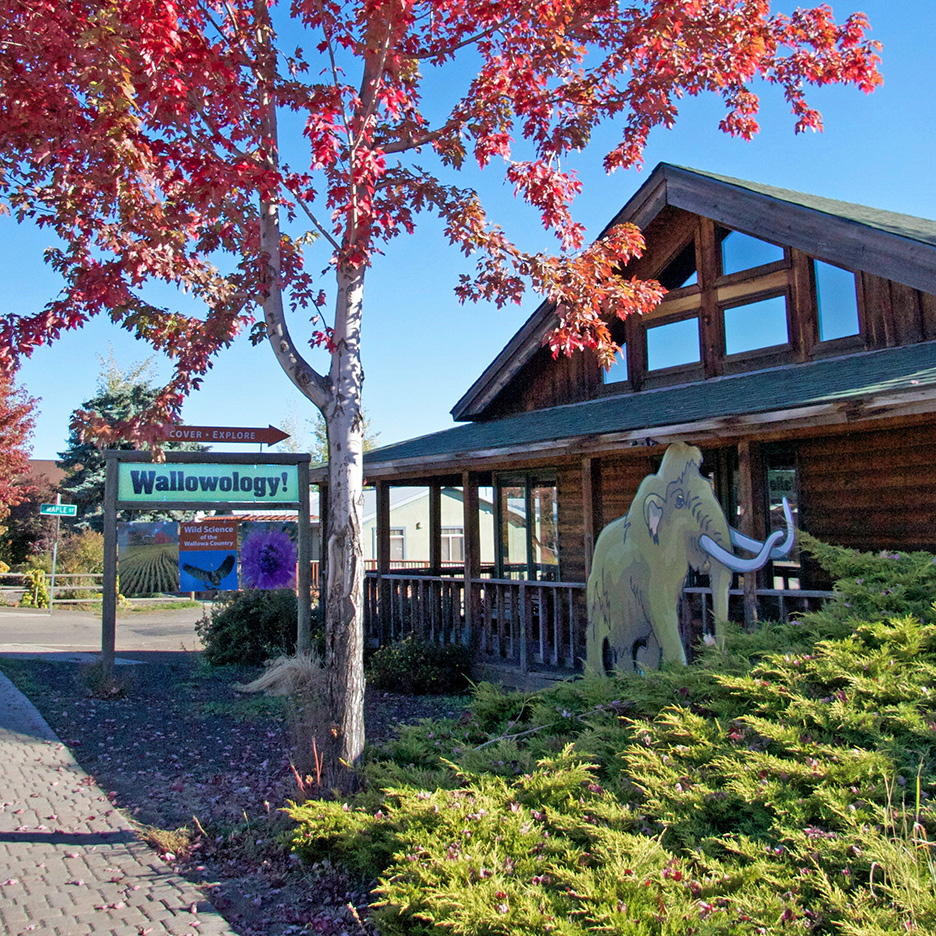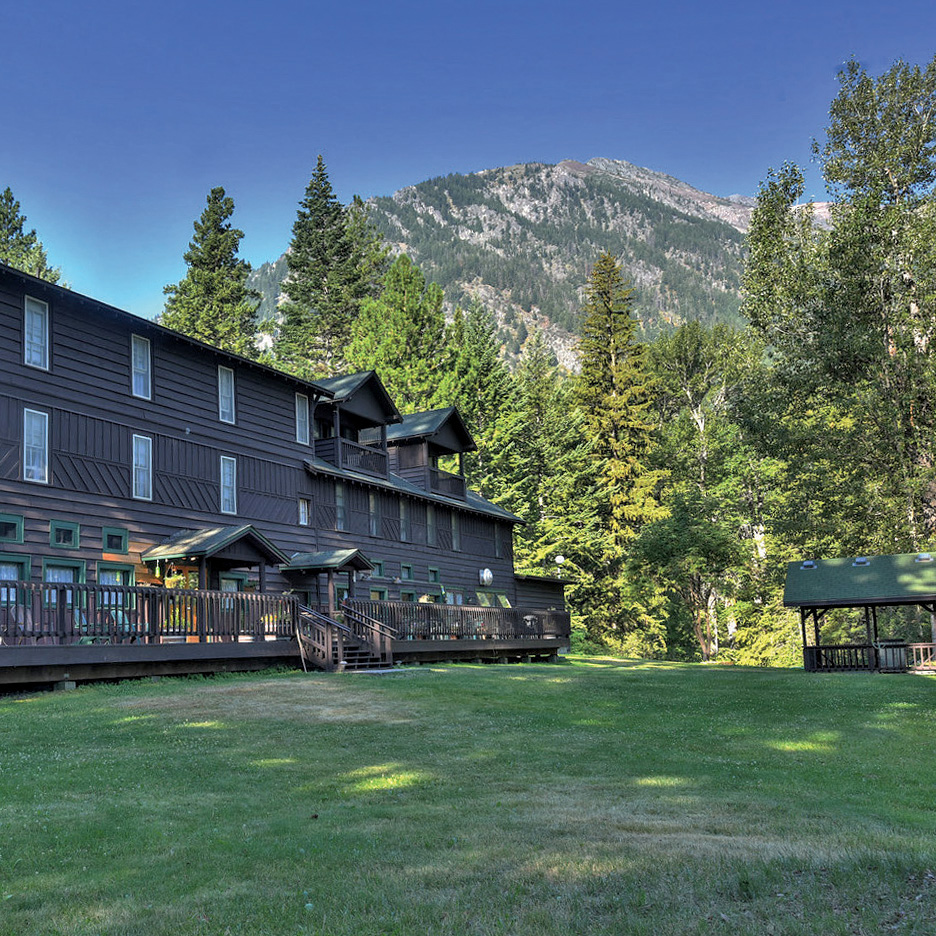
Joseph Canyon © David Jensen
Throughout Eastern Oregon, local residents and visitors alike are eager to learn about the landscapes and ecosystems of this geologically unique and geographically distinctive region. The dual legacies of rich cultural heritage and diverse ecological communities are as deeply intertwined as the mountains and river canyons that define this magical region of the intermountain West.
Who We Are
Eastern Oregon Legacy Lands is a rural, community-based conservation organization with scientific, educational and charitable purposes. Founded in 2012, Legacy Lands focuses primarily on land and human relationships with land—historically, today, and in the future. Legacy Land’s mission is to expand awareness and conservation of the natural and cultural history of greater Eastern Oregon through public education, landscape-level planning, and land protection.
What We've Done
Two of Legacy Lands' most prominent accomplishments are centered in Wallowa County: establishment of the Wallowology Natural History Center in downtown Joseph and leadership of the successful statewide campaign to acquire the Wallowa Lake Lodge and grounds last year. Legacy Lands is a business member of the limited liability company formed to purchase the Lodge and its surrounding ten acres at the head of Wallowa Lake. The Nez Perce Tribe will hold a Conservation Easement protecting this landscape in perpetuity.


What We Do
Eastern Oregon People & Organizations
Legacy Lands sponsors scientific explorations of Eastern Oregon, develops science-based, educational outreach programs, and provides financial assistance to its partners in support of shared goals. We work directly with scientists, landowners, educators, artists and conservationists, and with Indian Tribes, land trusts, the agricultural community, local governments, state and federal agencies, and our many nonprofit partners.
Education & Outreach
Legacy Lands engages residents and visitors to Eastern Oregon in a variety of ways which lead to new opportunities for interested individuals and families. The purpose of our public education and outreach initiatives is to expand comprehension and appreciation of the region’s remarkable landscapes, watersheds and ecosystems. In addition to Wallowology Natural History Discovery Center and its attendant exhibits and presentations, we offer science and art workshops for adults and special ongoing endeavors for kids, such as Saturday Science and CODE Green!
Opportunities for Involvement
The interactive nature of Legacy Lands programs is designed to provide myriad opportunities for people of all ages to participate further and deeper—whether it’s volunteering for a favorite educational or administrative project, coordinating an educational presentation, becoming a land trust supporter, working on a specific land acquisition, or involving oneself in the black hole of regional planning and policy issues.
Collaboration & Sustainability
Enhanced awareness of ecological constraints and the need for economic sustainability are propelling a growing interest in collaborative solutions for our communities that are both ecologically and economically resilient, as well as culturally sensitive. Sustainable stewardship of natural resources, including rangelands, forestlands, wetlands, watersheds, and agricultural lands, requires more than a basic understanding of these complex systems. Management practices are driven by foundational scientific knowledge as well as public policy. Consequently, informed and engaged communities are better positioned to practice sound land use planning and effective natural resource stewardship. At no time has this been more important than today!
Legacy Lands Programs
Education & Research
Our public education and outreach programs are housed at Wallowology Natural History Discovery Center, located on Main Street in downtown Joseph, Oregon. Wallowology’s mission is "to inform, inspire and involve residents and visitors in the conservation of ecosystems and landscapes that support and sustain rural communities throughout Eastern Oregon." We invite participants to discover and learn about these lands and waters through interactive exhibits, workshops, and evening presentations by scientists and artists. Outreach programs extend into the outdoors through guided Discovery Walks, day outings, school field trips, visits to farms and ranches, and overnight expeditions into wilderness and backcountry areas. The convergence of art and science is on full display at Wallowology.
Legacy Lands acknowledges the integrity of science and the role science and research play helping rural communities better understand and manage the landscapes they call home. The basis for all Legacy Lands work is information and knowledge derived primarily from scientific endeavors and observations over time. Research and public education serve as the foundation for all Legacy Lands programs and associated activities.
Conservation Planning
From the Blue Mountains to the High Desert, the geographic and biologic complexity of Eastern Oregon creates both challenges and opportunities for landscape conservation. Two-thirds of the region is owned and managed by public entities, such as the Bureau of Land Management and the Forest Service. Private lands typically occupy lower elevations, including river valleys and big game winter ranges, surrounded by higher elevation public lands.
Landscape-level conservation planning provides opportunities to implement long-term strategies for retention of systemic resilience, including proactive fire management for forest sustainability. It allows scientists and land managers to take advantage of modern technology coupled with traditional ground-proofed tactics to achieve desired goals for complex biological systems. This approach requires collaboration among diverse stakeholders, representing both public and private interests, often with divergent and conflicting interests. Conservation modeling and long-range habitat planning provide improved opportunities to forecast outcomes and compel increased public and professional participation.
Legacy Lands is uniquely positioned to bring together these diverse stakeholders in projects that serve both public and private interests while promoting its own goals. Strategic sponsorship of landscape-level planning helps develop conservation goals for specific areas or identifies specific needs. By working together with local conservation organizations and land trusts, Legacy Lands can also help develop ways to increase incentives for voluntary private landowner participation.
Land Protection
Legacy Lands strives to create an Eastern Oregon land conservation legacy in part through establishment of a system of reserves and corridors across the landscape, on both public and private lands. For public lands, including National Forests, BLM, and other federal and state holdings, this process is largely legislative or administrative, and several key grassroots conservation organizations are regularly engaged. Legacy Lands typically works to help expedite these land protection objectives whenever possible.
For private lands, we work closely with Eastern Oregon land trusts, Indian Tribes and landowners to secure important land parcels significant for their scientific value or cultural heritage. We seek to have these sites protected in perpetuity through fee title acquisition, conservation easements, and careful stewardship. In some cases, we work independently or with governmental entities. Partnerships with local land trusts are intended to help solidify their infrastructure, increase funding opportunities for land acquisition and stewardship, build their professional staff, and expand their capacity to meet regionally identified strategic land conservation goals.
